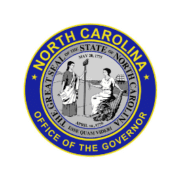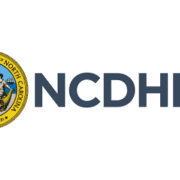Governor Extends Stay At Home Order Through May 8
100.1 FM ~ 1450 AM ~ WIZS, Your Community Voice ~ Click to LISTEN LOCAL
-Press Release, Office of Governor Roy Cooper
Governor Roy Cooper today issued Executive Order No. 135 extending North Carolina’s Stay At Home order through May 8. The orders extending the closure of restaurants for dine-in service and bars and closure of other close-contact businesses are also extended through May 8.
Governor Cooper shared details about North Carolina’s plan to lift restrictions in three phases once the data show that key metrics are headed in the right direction.
“The health and safety of people in North Carolina must be our top priority,” Cooper said. “This plan provides a roadmap for us to begin easing restrictions in stages to push our economy forward.”
Last week, Governor Cooper laid out the path forward centered on three things: testing, tracing and trends. Today, Governor Cooper and Dr. Mandy Cohen, Secretary of NC Department of Health and Human Services, shared more specifics on those key metrics. The Stay At Home and other orders are extended today because North Carolina has not yet seen a downward trajectory of those metrics needed to begin gradually lifting restrictions.
“North Carolina cannot stay at home indefinitely,” added Governor Cooper. “We have to get more people back to work. Right now, the decision to stay at home is based on public health data and White House guidance. North Carolina needs more time to slow the spread of this virus before we can safely begin lifting restrictions. I know that this pandemic has made life difficult for many people in our state and I am focused on keeping our communities safe while planning to slowly lift restrictions to help cushion the blow to our economy.”
“Data has driven our decisions, starting with the aggressive measures Governor Cooper took early on to slow the spread of COVID-19. Those actions combined with North Carolinians’ resolve to stay home to protect their loved ones have put our state on the right path. If we stick to these efforts right now we will continue to see a slowing of virus spread and we can slowly begin easing restrictions,” said Secretary Cohen.
The metrics that North Carolina is considering align with the White House guidance for Opening Up American Again.
In order to begin lifting restrictions, North Carolina needs to see progress in these key metrics:
- Sustained Leveling or Decreased Trajectory in COVID-Like Illness (CLI) Surveillance Over 14 Days
- Currently, North Carolina’s syndromic surveillance trend for COVID-like illness is decreasing over the last 14 days.
- Sustained Leveling or Decreased Trajectory of Lab-Confirmed Cases Over 14 Days
- Currently, North Carolina’s trajectory of lab-confirmed cases over the last 14 days cases is still increasing, although at a slower rate.
- Sustained Leveling or Decreased Trajectory in Percent of Tests Returning Positive Over 14 Days
- Currently, North Carolina’s trajectory in percent of tests returning positive over the last 14 days is increasing at a slow rate.
- Sustained Leveling or Decreased Trajectory in Hospitalizations Over 14 Days
- Currently, North Carolina’s trajectory of hospitalizations over the last 14 days is largely level with a slight trend upward.
In addition to these metrics, the state will continue building capacity to be able to adequately respond to an increase in virus spread. These include:
- Increase in Laboratory Testing
- Currently, North Carolina is testing approximately 2,500 to 3,000 people per day and is working to increase to at least 5,000 to 7,000 per day.
- Increase in Tracing Capability
- Currently, North Carolina has approximately 250 people doing contact tracing across its local health departments and is working to double this workforce to 500.
- Availability of Personal Protective Equipment
- The state is working to ensure there are adequate supplies to fulfill requests for critical PPE for at least 30 days. This includes face shields, gloves, gowns, N95 masks, and surgical and procedural masks. Currently, the state has less than a 30 day supply of gowns and N95 masks. The availability of PPE is calculated based on the average number of requests for the last 14 days compared to the supply that the state has on hand.
Governor Cooper also shared information about how North Carolina can gradually re-open over three phases to prevent hot spots of viral spread while also beginning to bring our economy back. These phases are based on the best information available now but could be altered as new information emerges.
In Phase 1:
- Modify the Stay At Home order to allow travel not currently defined as essential allowing people to leave home for commercial activity at any business that is allowed to be open, such as clothing stores, sporting goods stores, book shops, houseware stores and other retailers.
- Ensure that any open stores implement appropriate employee and consumer social distancing, enhanced hygiene and cleaning protocols, symptom screening of employees, accommodations for vulnerable workers, and provide education to employees and workers to combat misinformation
- Continue to limit gatherings to no more than 10 people
- Reopen parks that have been closed subject to the same gathering limitation. Outdoor exercise will continue to be encouraged.
- Continue to recommend face coverings in public spaces when 6 feet of distancing isn’t possible
- Encourage employers to continue teleworking policies
- Continue rigorous restrictions on nursing homes and other congregant care settings
- Local emergency orders with more restrictive measures may remain in place.
Phase 2
At least 2-3 weeks after Phase 1
- Lift Stay At Home order with strong encouragement for vulnerable populations to continue staying at home to stay safe
- Allow limited opening of restaurants, bars, fitness centers, personal care services, and other businesses that can follow safety protocols including the potential need to reduce capacity
- Allow gathering at places such as houses of worship and entertainment venues at reduced capacity
- Increase the number of people allowed at gatherings
- Open public playgrounds
- Continue rigorous restrictions on nursing homes and other congregant care settings
Phase 3
At least 4-6 weeks after Phase 2
- Lessen restrictions for vulnerable populations with encouragement to continue practicing physical distancing and minimizing exposure to settings where distancing isn’t possible
- Allow increased capacity at restaurants, bars, other businesses, houses of worships, and entertainment venues
- Further increase the number of people allowed at gatherings
- Continue rigorous restrictions on nursing homes and other congregant care settings
Governor Cooper and Dr. Cohen both underscored the need for the testing, tracing and trends to move in the right direction for each of these phases to move forward. If there is a spike in infections, tightening of restrictions may be needed temporarily.
Information about K-12 public schools is expected tomorrow.


